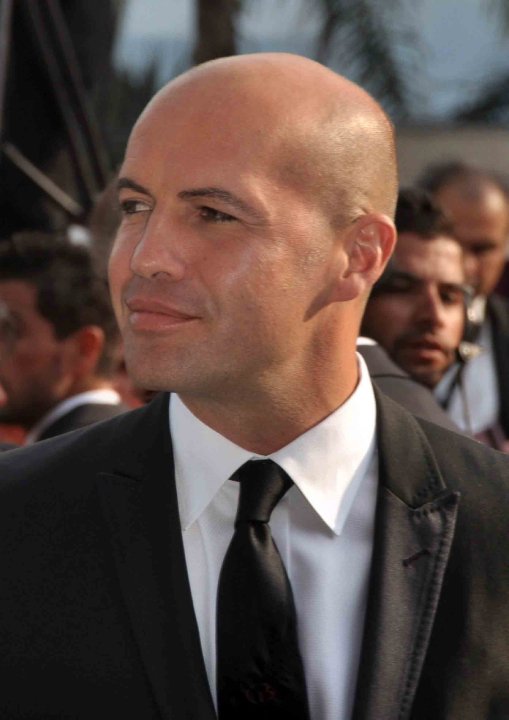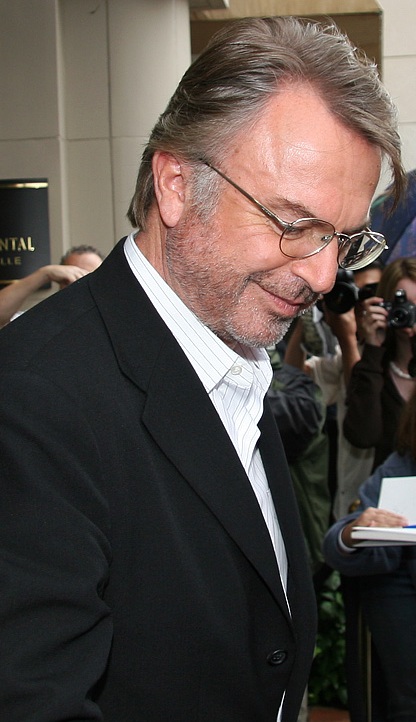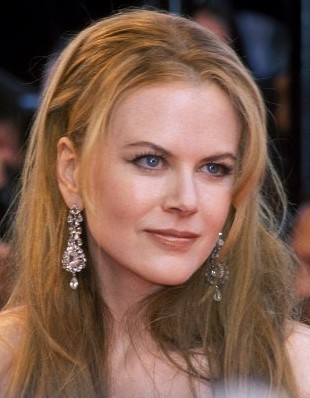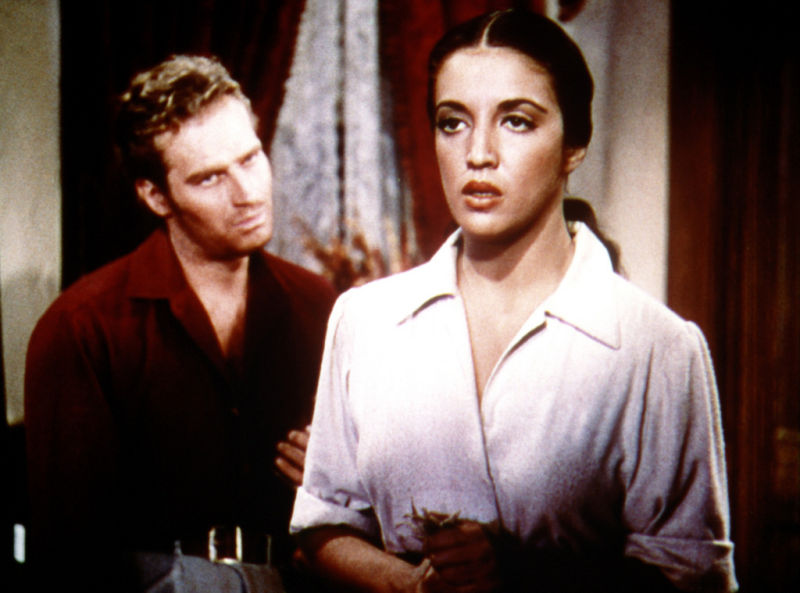|
The Deep (unfinished Film)
''The Deep'' is an unfinished film directed by Orson Welles, based on Charles Williams's novel '' Dead Calm'' (1963), which was later adapted as an eponymous 1989 film. Welles produced and wrote ''The Deep'', as well as played the role of Russ Brewer opposite Jeanne Moreau and Laurence Harvey. Welles worked on the film from 1966 to 1969. The film is incomplete; several major scenes were never shot, and portions of the soundtrack remain unrecorded. The original negative has been lost, and the film exists in two work prints, one in black and white and the other in color (the way the film was intended to be shown). Production Welles intended the film to be a less personal, more commercially viable project than his past efforts, saying of ''The Deep'': "My hope is that it won’t be an art-house movie. I hope it’s the kind of movie I enjoy seeing myself. I felt it was high time to show that we could make some money." Peter O'Toole recalls that he was approached by Welles ... [...More Info...] [...Related Items...] OR: [Wikipedia] [Google] [Baidu] |
Orson Welles
George Orson Welles (May 6, 1915 – October 10, 1985) was an American director, actor, writer, producer, and magician who is remembered for his innovative work in film, radio, and theatre. He is among the greatest and most influential filmmakers of all time. Aged 21, Welles directed high-profile stage productions for the Federal Theatre Project in New York City—starting with a celebrated Voodoo Macbeth, 1936 adaptation of ''Macbeth'' with an African-American cast, and ending with the political musical ''The Cradle Will Rock'' in 1937. He and John Houseman founded the Mercury Theatre, an independent repertory theatre company that presented productions on Broadway through 1941, including a modern, politically charged ''Caesar (Mercury Theatre), Caesar'' (1937). In 1938, his radio anthology series ''The Mercury Theatre on the Air'' gave Welles the platform to find international fame as the director and narrator of The War of the Worlds (1938 radio drama), a radio adaptation ... [...More Info...] [...Related Items...] OR: [Wikipedia] [Google] [Baidu] |
Peter O'Toole
Peter Seamus O'Toole (; 2 August 1932 – 14 December 2013) was an English actor known for his leading roles on stage and screen. His numerous accolades include the Academy Honorary Award, a BAFTA Award, a Primetime Emmy Award, and four Golden Globe Awards as well as nominations for a Grammy Award and a Laurence Olivier Award. O'Toole started his training at the Royal Academy of Dramatic Art (RADA) in London and began working in the theatre, gaining recognition as a Shakespearean actor at the Bristol Old Vic and with the English Stage Company. In 1959, he made his West End debut in '' The Long and the Short and the Tall'', and played the title role in ''Hamlet'' in the National Theatre's first production in 1963. Excelling on stage, O'Toole was known for his "hellraiser" lifestyle off-stage. He received a nomination for the Laurence Olivier Award for Best Comedy Performance for his portrayal of Jeffrey Bernard in the play '' Jeffrey Bernard Is Unwell'' (1990). Making h ... [...More Info...] [...Related Items...] OR: [Wikipedia] [Google] [Baidu] |
Dubbing (filmmaking)
Dubbing (also known as re-recording and mixing) is a post-production process used in filmmaking and the video production process where supplementary recordings (known as doubles) are lip-synced and "mixed" with original production audio to create the final product. Often this process is performed on films by replacing the original language to offer voiced-over translations. After sound editors edit and prepare all the necessary tracks—dialogue, automated dialogue replacement (ADR), effects, Foley (filmmaking), foley, and music—the dubbing mixers proceed to balance all of the elements and record the finished soundtrack. While dubbing and ADR are similar processes that focus on enhancing and replacing dialogue audio, ADR is a process in which the original actors re-record and synchronize audio segments. This allows filmmakers to replace unclear dialogue if there are issues with the script, background noise, or the original recording. The term "dubbing" also commonly refers ... [...More Info...] [...Related Items...] OR: [Wikipedia] [Google] [Baidu] |
Post-production
Post-production, also known simply as post, is part of the process of filmmaking, video production, audio production, and photography. Post-production includes all stages of production occurring after principal photography or recording individual program segments. The traditional first part of the post-production process, non-linear (analog) film editing, has mostly been replaced by digital or video editing software, which operates as a non-linear editing (NLE) system. The advantage of non-linear editing is the ability to edit scenes out of order, thereby making creative changes at will. This flexibility facilitates carefully shaping the film in a thoughtful, meaningful way for emotional effect. Once the production team is satisfied with the picture editing, the editing is said to be ''locked''. At this point the turnover process begins, in which the picture is prepared for lab and color finishing, and the sound is ''spotted'' and turned over to the composer and sound desi ... [...More Info...] [...Related Items...] OR: [Wikipedia] [Google] [Baidu] |
Munich Film Museum
The Munich Film Archive, in the Munich Stadtmuseum, is one of eight film museums in Germany. It has no showrooms and is limited to screening the films in a single cinema with 165 seats, as well as collecting, archiving, and restoring film copies. All analog and digital formats (except 70mm) can be shown. History The Film Museum was founded in late 1963 as a department of the Munich Stadtmuseum and holds an extensive collection of copies of historical films. Which are also restored and copied locally. Special focus is placed on the collection of German silent films, the work of the German film immigrants from the Nazism period, the New German Cinema, as well as the Munich film history (e.g. Karl Valentin, Herbert Achternbusch, documentary material about Munich). As cinematheque, the museum makes its collection accessible to public and research. The in-house cinema - one of the first municipal theaters of the Federal Republic of Germany - is one of the few places in Germany, in whic ... [...More Info...] [...Related Items...] OR: [Wikipedia] [Google] [Baidu] |
Billy Zane
William George Zane Jr. (born February 24, 1966) is an American actor. His breakthrough role was in the Australian film ''Dead Calm (film), Dead Calm'' (1989), a performance that earned him a nomination for the Chicago Film Critics Association, Chicago Film Critics Association Award for Most Promising Actor. He has since appeared in numerous films and television series, and starred as the main antagonist Caledon Hockley in the epic film ''Titanic (1997 film), Titanic'' (1997), for which he and the rest of the ensemble cast was nominated for a Screen Actors Guild Awards, Screen Actors Guild Award. Zane's other film roles include Phantom (character), Kit Walker / The Phantom in the superhero film ''The Phantom (1996 film), The Phantom'' (1996), "Match" in the ''Back to the Future (franchise), Back to the Future'' franchise, Lieutenant Val Kozlowski in ''Memphis Belle (film), Memphis Belle'' (1990), The Collector in ''Demon Knight'' (1995), Curtis Zampf in ''The Believer (2001 film) ... [...More Info...] [...Related Items...] OR: [Wikipedia] [Google] [Baidu] |
Sam Neill
Sir Nigel John Dermot "Sam" Neill (born 14 September 1947) is a New Zealand actor. His career has included leading roles in both dramas and blockbusters. Considered an "international leading man", he is regarded as one of the most versatile actors of his generation. Born in Northern Ireland to an English mother and New Zealand father, Neill moved to Christchurch with his family in 1954. He first achieved recognition with his appearance in the film ''Sleeping Dogs (1977 film), Sleeping Dogs'' (1977), which he followed with leading roles in ''My Brilliant Career (film), My Brilliant Career'' (1979), ''Omen III: The Final Conflict'', ''Possession (1981 film), Possession'' (both 1981), ''Evil Angels (film), Evil Angels'' (also known as ''A Cry in the Dark'') (1988), ''Dead Calm (film), Dead Calm'' (1989), ''The Hunt for Red October (film), The Hunt For Red October'' (1990), ''The Piano'' (1993), and ''In the Mouth of Madness'' (1994). He came to international prominence as Alan Grant ... [...More Info...] [...Related Items...] OR: [Wikipedia] [Google] [Baidu] |
Nicole Kidman
Nicole Mary Kidman (born 20 June 1967) is an Australian and American actress and producer. Known for Nicole Kidman on screen and stage, her work in film and television productions across many genres, she has consistently ranked among the world's highest-paid actresses since the late 1990s. List of awards and nominations received by Nicole Kidman, Her accolades include an Academy Award, two Primetime Emmy Awards, a British Academy Film Award, and six Golden Globe Awards. Kidman began her career in Australia with the 1983 films ''Bush Christmas'' and ''BMX Bandits (film), BMX Bandits''. Her breakthrough came with lead roles in ''Dead Calm (film), Dead Calm'' and the miniseries ''Bangkok Hilton'' (both 1989). She came to international prominence with a supporting role in ''Days of Thunder'' (1990) followed by leading roles in ''Far and Away'' (1992), ''To Die For'' (1995), ''Batman Forever'' (1995), ''Practical Magic'' (1998), and ''Eyes Wide Shut'' (1999). She received consecutiv ... [...More Info...] [...Related Items...] OR: [Wikipedia] [Google] [Baidu] |
Voice-over
Voice-over (also known as off-camera or off-stage commentary) is a production technique used in radio, television, filmmaking, theatre, and other media in which a descriptive or expository voice that is not part of the narrative (i.e., non-diegetic) accompanies the pictured or on-site presentation of events. The voice-over is read from a script and may be spoken by someone who appears elsewhere in the production or by a specialist voice actor. Synchronous dialogue, where the voice-over is narrating the action that is taking place at the same time, remains the most common technique in voice-overs. Asynchronous, however, is also used in cinema. It is usually prerecorded and placed over the top of a film or video and commonly used in documentaries or news reports to explain information. Voice-overs are used in video games and on-hold messages, as well as for announcements and information at events and tourist destinations. It may also be read live for events such as award pres ... [...More Info...] [...Related Items...] OR: [Wikipedia] [Google] [Baidu] |
Charlton Heston
Charlton Heston (born John Charles Carter; October 4, 1923 – April 5, 2008) was an American actor. He gained stardom for his leading man roles in numerous Cinema of the United States, Hollywood films including biblical epics, science-fiction films, and action films. He won an Academy Award in addition to earning nominations for three Golden Globe Awards and three Primetime Emmy Awards. He won numerous honorary accolades including the Jean Hersholt Humanitarian Award in 1978, the Golden Globe Cecil B. DeMille Award in 1967, the Screen Actors Guild Life Achievement Award in 1971, the Kennedy Center Honors in 1997, and the Presidential Medal of Freedom in 2003. Heston gained stardom for his leading roles as Moses in ''The Ten Commandments (1956 film), The Ten Commandments'' (1956), and as the Judah Ben-Hur, title role of ''Ben-Hur (1959 film), Ben-Hur'' (1959), the latter of which earned him the Academy Award for Best Actor. His other notable credits include ''The Greatest Show on ... [...More Info...] [...Related Items...] OR: [Wikipedia] [Google] [Baidu] |
Film Trailer
A film, also known as a movie or motion picture, is a work of visual art that simulates experiences and otherwise communicates ideas, stories, perceptions, emotions, or atmosphere through the use of moving images that are generally, since the 1930s, synchronized with sound and (less commonly) other sensory stimulations. Etymology and alternative terms The name "film" originally referred to the thin layer of photochemical emulsion on the celluloid strip that used to be the actual medium for recording and displaying motion pictures. Many other terms exist for an individual motion-picture, including "picture", "picture show", "moving picture", "photoplay", and "flick". The most common term in the United States is "movie", while in Europe, "film" is preferred. Archaic terms include "animated pictures" and "animated photography". "Flick" is, in general a slang term, first recorded in 1926. It originates in the verb flicker, owing to the flickering appearance of early films. ... [...More Info...] [...Related Items...] OR: [Wikipedia] [Google] [Baidu] |
The Immortal Story
''The Immortal Story'' () is a 1968 French film directed by Orson Welles and starring Jeanne Moreau. The film was originally broadcast on French television and was later released in theatres. It was based on a short story by the Danish writer Karen Blixen (more widely known by her pen name Isak Dinesen). With a running time of sixty minutes, it is the shortest feature film directed by Welles. Plot In nineteenth-century Macao, Mr. Clay (Orson Welles) is a wealthy merchant at the end of his life. His only constant companion is his book-keeper, a Polish-Jewish emigrant named Levinsky (Roger Coggio). One evening, while reading to Clay before bed, Levinsky recites a prophecy by Isaiah. Clay declares his hatred of prophecies and begins to tell a story he once heard on a ship of a rich old man who offers a sailor five guineas to impregnate his wife, however Levinsky completes the story, having heard it himself from multiple other seamen. Clay becomes obsessed in making that legendar ... [...More Info...] [...Related Items...] OR: [Wikipedia] [Google] [Baidu] |









